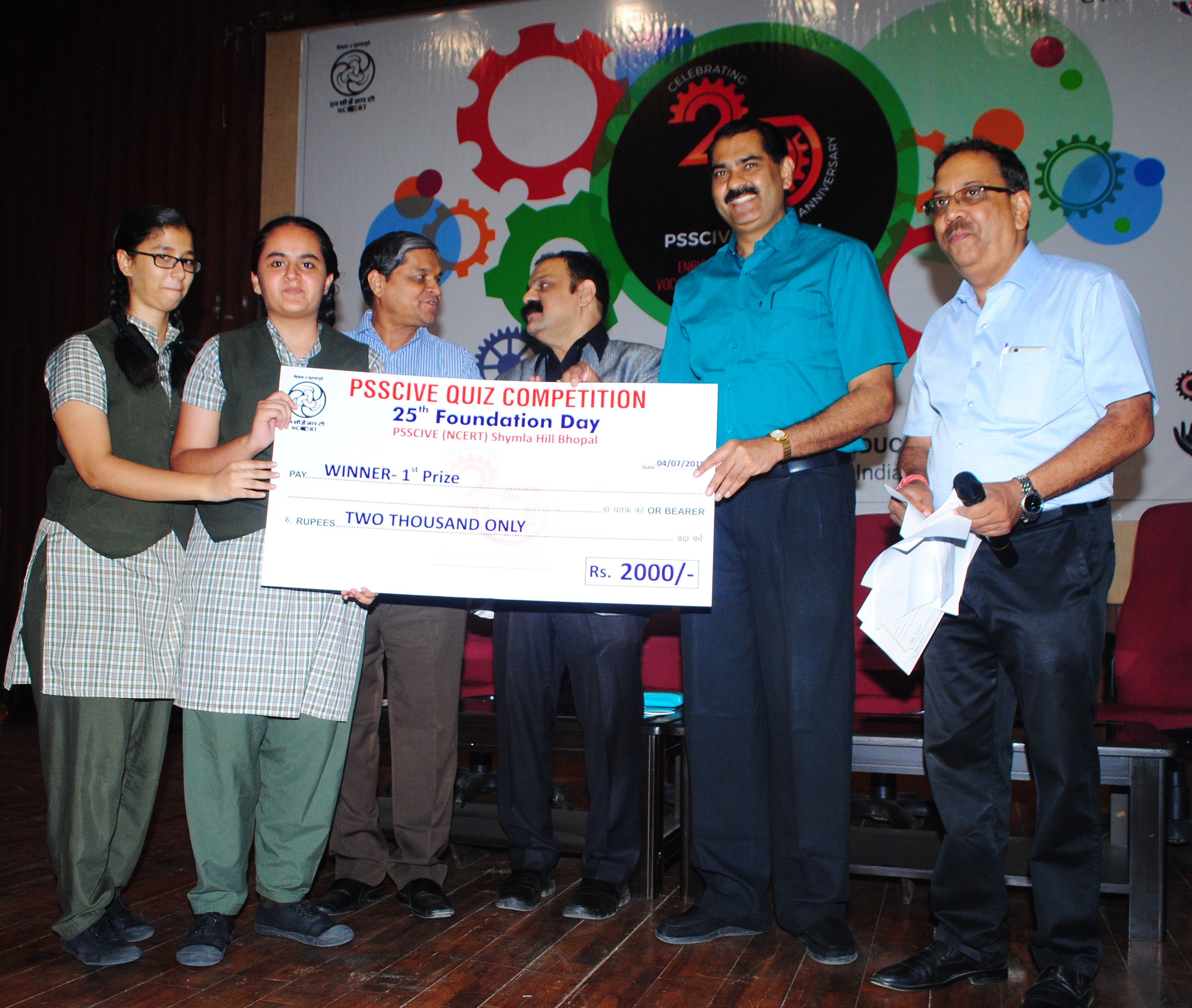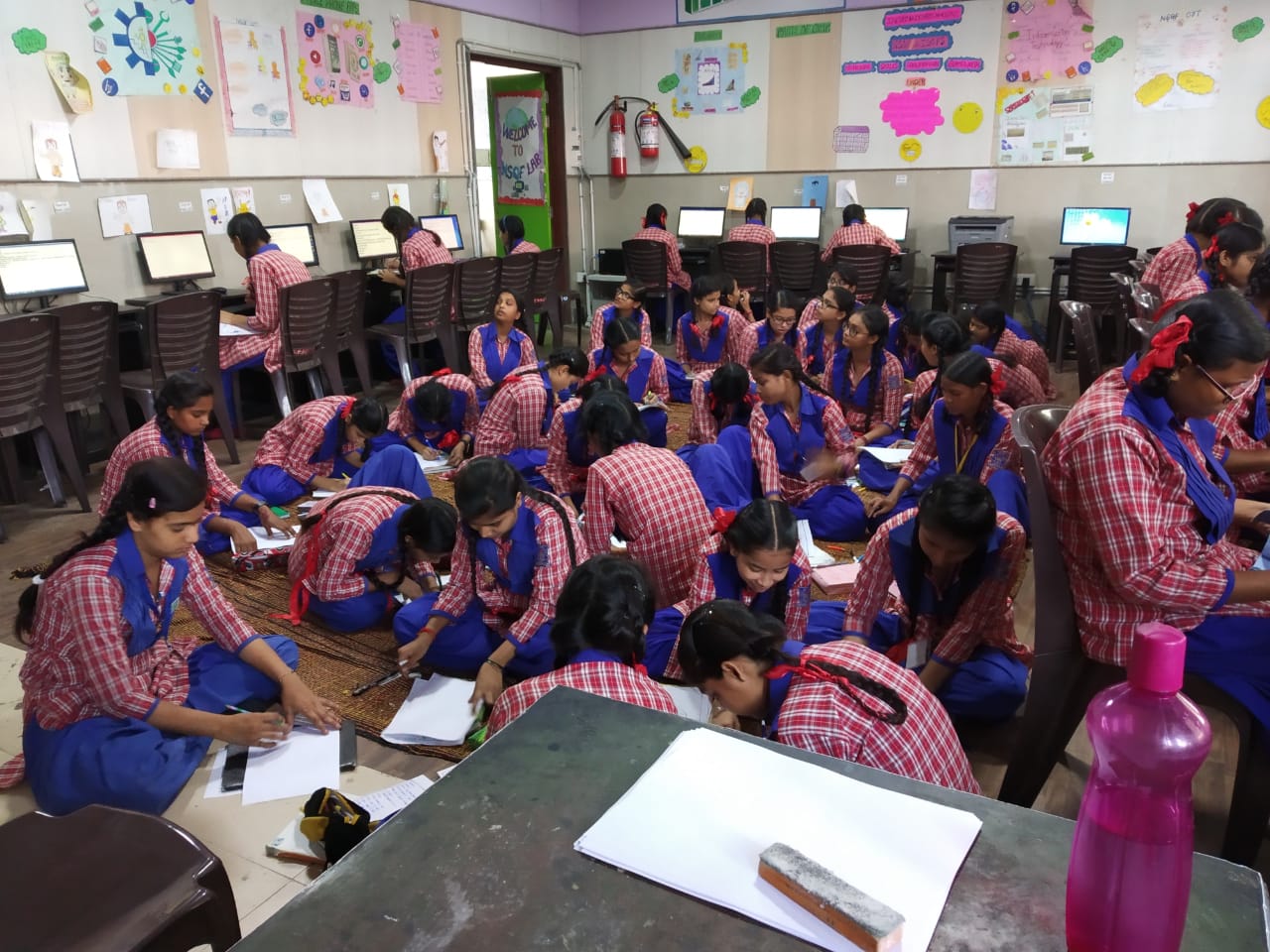Pandit Sunderlal Sharma Central Institute of Vocational Education (PSSCIVE), Bhopal, has celebrated its silver jubilee this year. With 25 years of active contribution, the institute has taken many initiatives to strengthen the vocational foundation at the school level in India. In this Skill Story, Prof. Rajesh P. Khambayat, Joint Director, PSSCIVE, takes us through the journey so far and tells us about the present and future programs for facilitating school level vocational education.
About PSSCIVE and its Contribution to the Evolving Vocational Education System in Schools
PSSCIVE was established in 1993 and it is a constituent unit of National Council of Education Research and Training (NCERT), Delhi. We are one of the leading UNEVOC Network Centre in India. We perform 5 key roles in planning and implementation of vocationalisation of education in schools.
First, as an advisory body, we advise and assist the Ministry of Human Resource Development and State Governments in the vocationalisation of secondary and higher secondary education programme under the National Skill Qualification Framework (NSQF). Second, we actively engage in developmental activities, develop learning outcome based curricula, teaching-learning materials and guidelines for implementation of vocational courses in the schools. Third, we conduct research at the national and regional level and disseminate research findings. Fourth and most important is the training, we orient and train the key functionaries, including Principals and Vocational Coordinators in the implementation of vocationalisation of secondary and higher secondary education and fifth role is that of extension services in the form of organizing extension lectures on upcoming themes and areas by inviting domain experts. We also publish a bi-annual journal of vocational education.
 Leveraging government’s schemes to strengthen vocational programs in schools
Leveraging government’s schemes to strengthen vocational programs in schools
Under the Samagra Shiksha Abhiyaan (SSA), the new integrated scheme of school education, vocationalisation has introduced as an integrated component at senior secondary level. It provides for diversification of educational opportunities so as to enhance individual employability, reduce the mismatch between demand and supply of skilled manpower and provides an alternative for those pursuing higher education. Our institute has mandated to look into various aspects of curriculum and pedagogy for grades 9 to 12.
We are addressing the bottom of the skills pyramid from the perspective of the National Skills Qualification Framework (NSQF). I believe it is important that we create skills awareness and expose the students at an early age. I would look at this model as ‘Catch Them Young’, since this will help in making our young population aware and equipped with skills required for the world of work. This new integrated scheme (SSA) also provides scope to make skills aspirational.

At the same time, one of major concern is that the majority of Indian students lack employability skills. Therefore, while designing the vocational curriculum we have well integrated the Employability Skill component and Job-specific Skill development programs. We have given 37% weightage to Employability Skills and remaining 63% is dedicated to job specific vocational education.
Under employability skills, we focus on five major components – these include Communication skills, ICT skills, Self-management, Entrepreneurial skills and Green Skills. They have been well structured across from Class 9 to 12. It is first time that Green skills are being introduced in the school vocational programs in India.
Introducing Employability Skills in school curriculum
The Employability Skills curriculum for all these components for Class 9 to 12 is already prepared along with job specific vocational contents and is made available on our website. To facilitate smooth learning, we have come up with the textbook on Employability Skills for student and along with that, we have also developed a teacher handbook to help translate the ideas into real actions.
We also have also developed e-content as an online learning platform, which can be easily accessed, from our website. http://www.psscive.ac.in/Employability_Skills.html. For all the topics on Employability Skills, students have access to e-content, videos and self-check exercises etc. The content is well-structured keeping in view the level of the students, curriculum requirements, self- assessments and additional reading resources for students to explore more and learn. We are exploring to track the students on completion of the units, understand their difficulties, and recognize their success and their feedback further improve the e-content. In order to implement the employability skills effectively, we are organising orientation and training programmes for vocational teachers to make them aware and how to implement the ideas.
We were assigned 73 job roles in 18 job sectors such as Agriculture, Plumbing, Construction, Security, Electronics and Hardware, Healthcare, Food Processing, Gem and Jewellery, Textile, ITES, Organized Retail, Tourism and Hospitality, Logistics, Media and Entertainment, Power, and Telecom sectors. We have already prepared curriculum for all the 73 job roles associated with these sectors and we are working on teaching materials. These job roles pertain to level 1 to 4 of NSQF.
Implementing vocational courses in schools and training of teachers
The vocational courses are being implemented in the government schools and CBSE schools. One of the major challenge is the availability of trained teachers. Hence, this year our focus is on conducting orientation programs for the key functionaries including Principals to make them understand the course requirements, including infrastructure and support to the programs. In addition, this year we have organised Capacity-building programmes for vocational teachers. The practising Teachers are being trained on aspects related to vocational pedagogy and how they can integrate employability skills into their teaching.
I am happy to share that considering the challenges and requirements of Vocational Education and Training our institute has designed a Diploma Program in Vocational Education and Training (DVET). It’s a one year full-time course of NCERT aimed at improving teachers’ capacity for effective execution of the vocationalisation of the senior secondary education program. Currently, this program is open for enrolment and we wish the states offering vocational education to come forward to nominate their teachers to this program to create a pool of resource persons for effective implementation of the scheme in the states.
Industry collaboration and school linkages
To enhance industry engagement and collaboration, we are actively engaging them while designing the curriculum of the vocational programs. We have invited respective Sector Skill Councils (SSCs) and industries to nominate their representatives to be consulted while designing the curricula and learning material of the vocational program. Nevertheless, despite these steps, there is a lot to be done at school level to involve industry in implementing of the vocational education. There is a need for creating awareness and making right information available is essential for strengthening school-industry linkages. There is a need to create awareness regarding the nature of industries nearby available near to schools and developing teachers to collaborate with industry is equally important.
Upcoming interventions and road ahead
I would like to mention two new initiatives. The first is the NCERT has signed an MOU with the Academy of Korean Studies (AKS), South Korea. This is a collaborative endeavour where we are setting up vocational demonstration multipurpose school in Bhopal in collaboration with Korean Research Institute for Vocational Education and Training (KRIVET) in Beauty and Wellness and Mechatronics domains. The Korean experts are helping us in designing the curriculum, learning materials and pedagogy.
The second intervention is aimed at making young minds open to skill-based learning by making vocational education aspirational and promising. In order to the harness the potential of young children and creating future workforce, we will be setting up 10 model vocational schools across India. Under the Innovative Model of Vocational Education in Schools Project, we will set up model vocational schools in six states, viz, Tripura, Orissa, Madhya Pradesh, Rajasthan, Karnataka and Meghalaya including our 4 Demonstration School located in Ajmer, Bhopal, Mysore and Bhubaneswar each attached to respective Regional Institute of Education (RIEs). In every project school, practical labs for 2 job sectors and 2 job roles will be established. This is first of its kind an experimental initiative, we are hopeful that this will make Vocational Education more aspirational to our new generation.
Subscribe to our YouTube channel for more updates:
Subscribe on YouTube




Comments 1